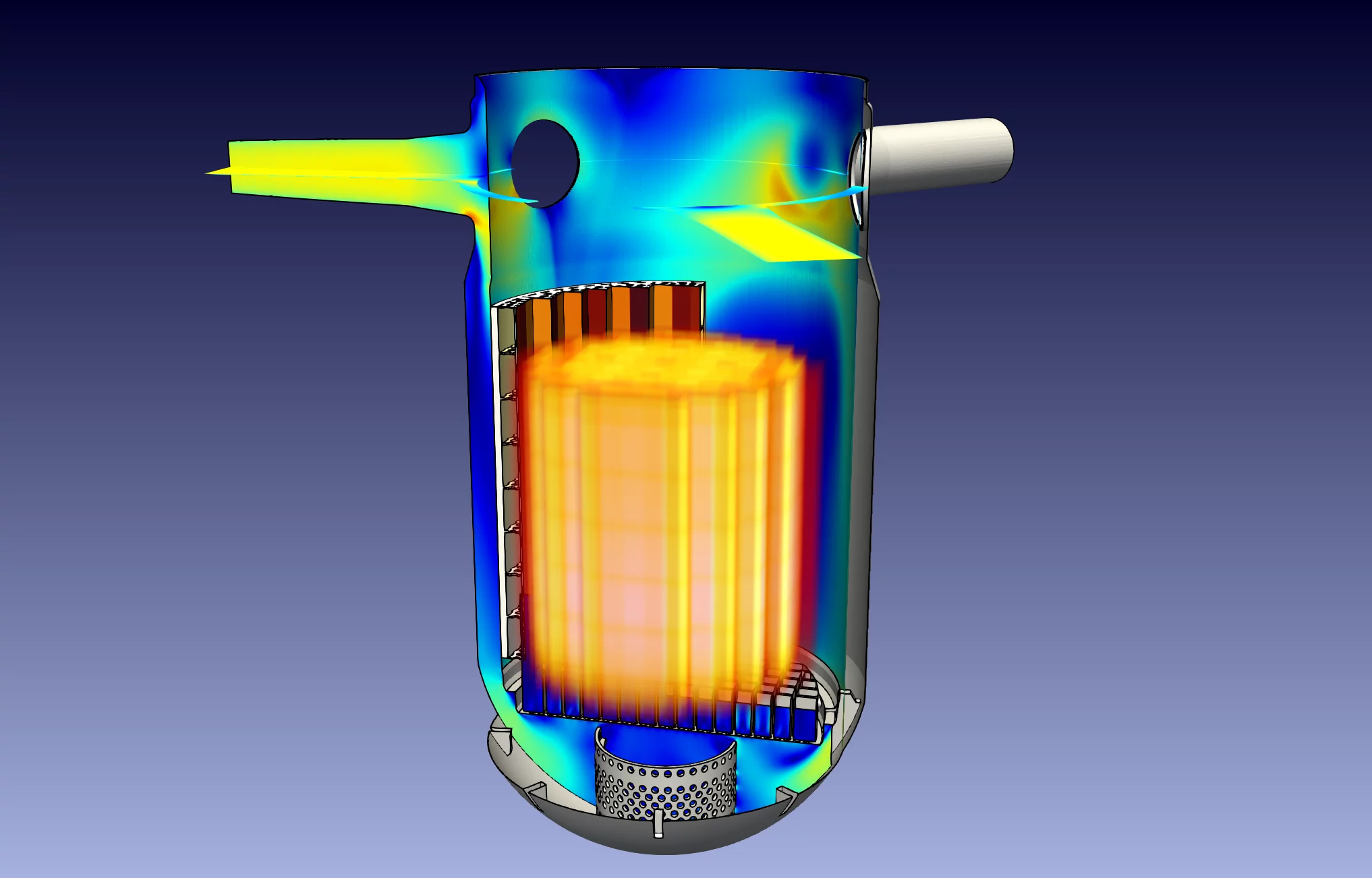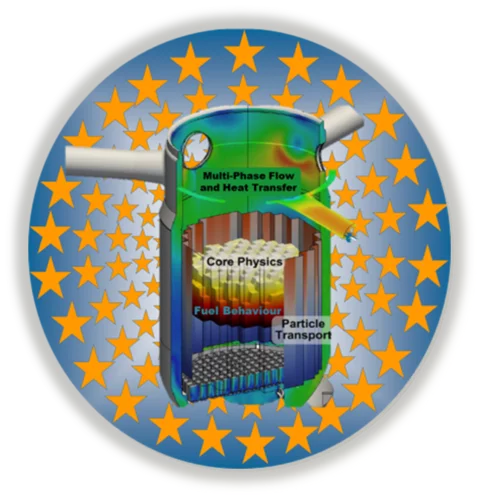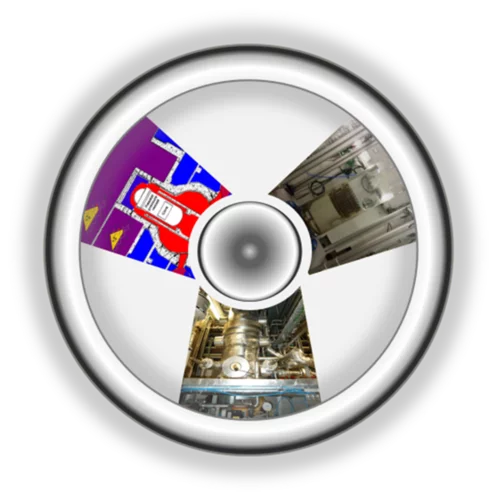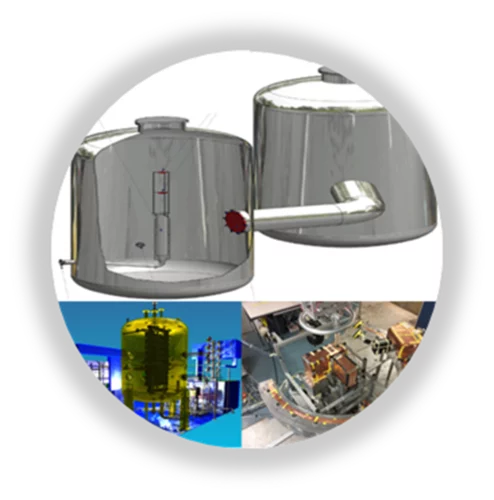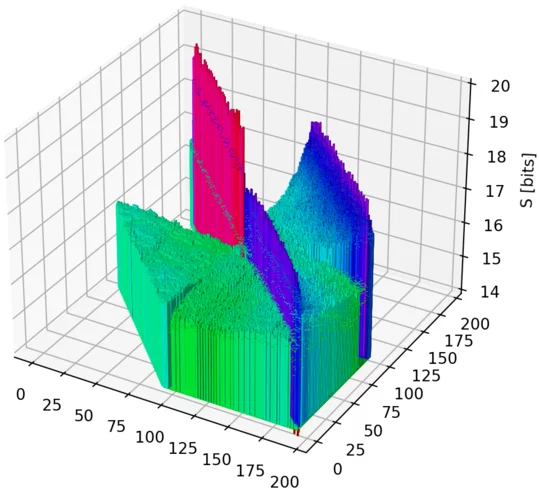The PSI Laboratory for Reactor Physics and Thermal-Hydraulics conducts computational and experimental research with focus on the safety of nuclear reactors and systems.
Lab News and Scientific Highlights
Not Rocket Science, just Nuclear Rocket Science
The PSI Laboratory for Reactor Physics and Thermal-Hydraulics (LRT) conducts computational and experimental research with focus on the safety of nuclear reactors and systems. In recent years, it established the EPSILON program to coordinate and consolidate its research activities on nuclear space applications. Among other things, developments were initiated towards an open-source European platform for high-fidelity simulations and experiments dedicated to space nuclear reactors. Referred to as the openSPACE platform, its underlying concepts are a) to include not only solvers but also reference simulation models as well as experimental validation data; b) to make all of these available to the broader and combined nuclear- and space communities for usage and/or further developments. Through this, the goal is thus not only to facilitate collaborative research in this area but also to enable effective support to the European Space Agency for thorough design, safety and performance evaluations of nuclear reactor systems for in-space propulsion and/or surface power. A first development phase focused on nuclear electric propulsion was proposed and retained among the two projects selected in 2023 by the Swiss National Science Foundation (SNSF) for its MARVIS call (Multidisciplinary Advanced Research Ventures in Space) and funded by the Swiss Secretariat for Research and Innovation (SERI). This project, to be conducted via four inter-connected PhD theses, was launched in October 2024 and this marks thus a key milestone for the propulsion of PSI nuclear research towards space.
Breaking the Drops
For water-cooled nuclear reactors, a loss of coolant accident constitutes one of the key scenarios to be evaluated for the design of the plant and associated safety systems. Even if these accidents are not expected to occur at all during reactor lifetime, their potential consequences include the heat up of the fuel in the reactor core. For the recovery of the plant to safe conditions, safety systems are in place to inject water in order to reflood the core and to quench the high temperature fuel. The two-phase flow behaviour during this reflooding phase is extremely complex. In particular, the prediction of the behaviour of small liquid droplets generated as the quench front propagates upwards has a significant effect on the fuel temperatures in the upper regions of the reactor core. In collaboration with the US Nuclear Regulatory Commission (NRC), we have been working to improve our modelling of the droplet behaviour and their impact on key safety parameters.
Approximate Computing for Nuclear Reactor Simulations
During the last decades, computing power has been subject to tremendous progress due to the shrinking of transistor size as predicted by Moore’s law. However, as we approach the physical limits of this scaling, alternative techniques have to be deployed to increase computing performance. In this regard, the next big advance is envisioned to be the usage of approximate computing hardware based on field-programmable gate arrays and/or digital-analogue in-memory circuits. Such approximate computing can provide disproportional gain (x1000) in energy efficiency and/or execution time for acceptable loss of simulation accuracy. This could be highly beneficial in order to accelerate computational intensive simulations such as reactor core analyses with higher resolution multi-physics models. On the other hand, the execution of programming codes on low-precision hardware may result in inadequate outcomes due to quality degradation and/or algorithm divergence. To address these questions, studies on the stability and the performance of advanced reactor simulation algorithms as function of reduced floating-point arithmetic precision are being conducted at the laboratory for reactor physics and thermal-hydraulics. Results obtained so far indicate a large room for the acceleration of nuclear engineering applications using mixed-precision hardware. Therefore, research is now being enlarged towards assessing multiprecision computing methods for reactor core simulations with higher spatial resolution.
Contact
Quality Management
NES Open positions
Current job openings in the Research Division for Nuclear Energy and Safety


